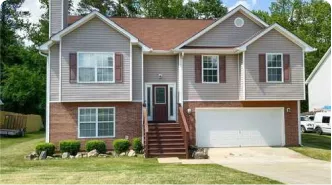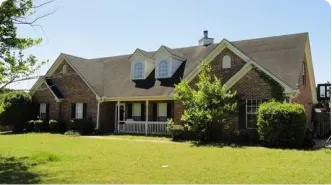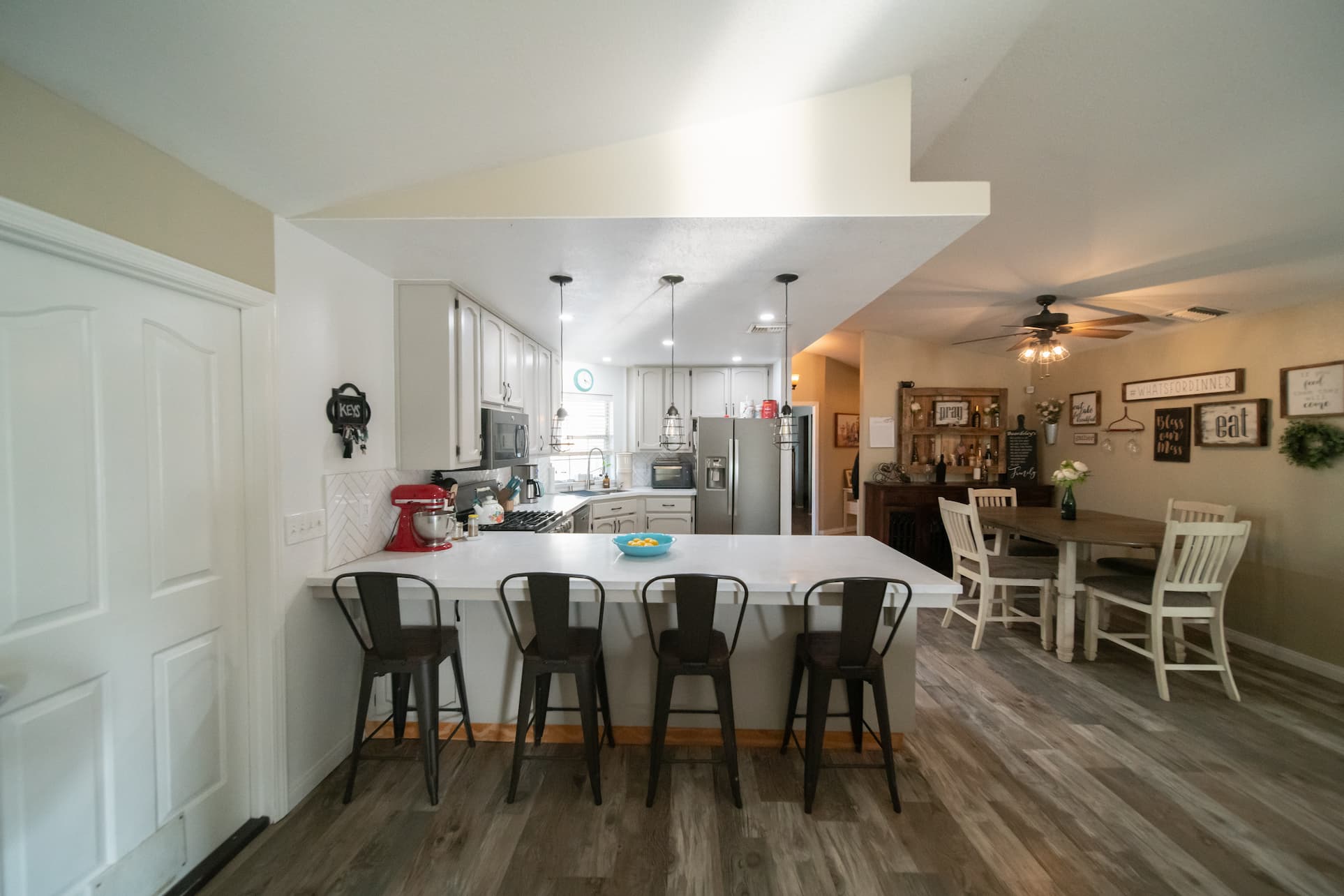Kentucky, known for its rolling hills and historic landmarks, offers a vibrant short-term rental market. This guide delves into Kentucky's rental laws, providing insights into how state and local regulations shape the Airbnb experience.
Kentucky's Definition of a Short Term Rental
In exploring the intricacies of short-term rental definitions and regulations, the state of Kentucky presents a unique case. This analysis delves into how Kentucky defines Airbnb and similar platforms, explores possible exceptions to these definitions, and compares Kentucky's stance with other major states across the U.S. Understanding these nuances is crucial for property owners, renters, and tourists alike.
In Kentucky, the Supreme Court has established that the use of real estate for short-term rentals through platforms like Airbnb is considered "commercial" rather than "residential" in nature. This distinction is pivotal in understanding the regulatory framework within the state. The common definition, aligned with many localities, is the rental of a dwelling unit for less than 30 consecutive days.
There are no explicit state-wide exceptions to this definition. However, local jurisdictions may have variations, so it's imperative to consult local ordinances for specific details. The state allows local governments to determine what length of stay qualifies as "short term," which highlights the importance of localized interpretation.
Kentucky's approach to defining and regulating short-term rentals, particularly Airbnb, is in line with a broader national trend of viewing these rentals as commercial entities. However, the state's regulations are nuanced and can vary at the local level. When compared to other states, Kentucky's stance is not singular. It shares common ground in terms of general definitions and the impact of local laws. This complexity underlines the need for property owners and renters to stay informed about the specific requirements in their area to navigate the evolving landscape of short-term rental regulations effectively.
Starting a Short Term Rental Business in Kentucky
Embarking on a short-term rental business in Kentucky, such as Airbnb, can be a lucrative venture. However, it's essential to navigate through various regulations, safety inspections, and paperwork to ensure a smooth start. This guide aims to provide you with detailed insights into these aspects, helping you establish a compliant and successful rental business.
Starting a new Airbnb in Kentucky involves several steps, tailored to specific local jurisdictions:
- Obtaining Permits and Licenses: Many counties and cities require hosts to obtain permits or licenses. For instance, Boone County mandates a valid Short-Term Rental (STR) Permit from the Boone County Occupational License Office and compliance with zoning regulations.
- Adhering to Local Ordinances: Regulations can vary significantly. For example, in Bowling Green, short-term rentals are prohibited in single-family residential districts, unlike Bed and Breakfasts which can operate with a special permit.
- Registration: In Louisville, hosts must register their short-term rental property with the Office of Planning & Design Services and maintain an active registration. They must also register with the Louisville Metro Revenue Commission for tax purposes.
- Safety Standards Compliance: Properties must meet various safety regulations, including smoke and carbon monoxide detectors, emergency exits, and adherence to building codes.
- Housing Inspections: Some areas require initial housing inspections and recurring re-inspections for licensing purposes.
- Property Details and Contacts: Submit details of the property and emergency contacts. In Boone County, the emergency contact must be available to arrive within one hour if needed.
- Proof of Insurance: Hosts need to provide proof of liability insurance, with many areas requiring a minimum coverage of $1 million per occurrence.
- Permit and License Fees: These can range from $25 to $500, varying by location. Louisville charges $250 annually, while Lexington charges $200 for the first unit and $100 for each additional unit.
For more information, hosts can contact:
- Local Government Offices: Information on specific local regulations and requirements
- Airbnb Customer Service: For direct assistance, hosts can call Airbnb at +1-855-424-7262 or +1-415-800-5959. Additionally, they can use the 'Contact Us' link on the Airbnb website for chat support or reach out to @Airbnbhelp on Twitter
Starting a short-term rental business in Kentucky requires careful attention to local regulations, safety inspections, paperwork, and associated fees. It's essential to stay informed and comply with the specific requirements of the area where your property is located. Utilize available resources such as local government offices and Airbnb's customer service for guidance. With proper preparation and compliance, you can set up a thriving Airbnb business in the Bluegrass State.
Required Documents for Kentucky Short Term Rentals
Navigating the requirements for short-term rentals in Kentucky can be complex, but understanding the necessary documents is crucial for compliance. This guide aims to simplify the process for prospective hosts.
Documents Required for License or Permission
The specific documents required vary by location, but commonly include:
- Zoning Compliance Permit: Required from the Division of Planning.
- Business License: Issued by the Division of Revenue.
- Special Fees License: Also from the Division of Revenue, with an annual renewal. The fee is $200 for the first unit and $100 for each additional unit in Lexington.
To apply for the Special Fees License, the following documents are needed:
- Completed application with an attached Excel document detailing the rental properties
- Sworn affidavits by the applicant and the property owner (if different)
- Zoning Compliance Permit for each property
- Site and floor plan of the rental property
- Proof of general liability insurance (minimum $1 million in most jurisdictions)
- For properties with septic tanks, evidence of tank capacity
- For Hosted Short-Term Rentals, two forms of residency proof
In Louisville, hosts must provide at least two documents verifying primary residency, which can include a Kentucky-issued driver's license, voter registration, utility bill, motor vehicle registration, or federal/state tax returns. The owner must show residency for at least six months prior to application.
Kentucky Short Term Rental Taxes
Kentucky, known for its rich history and vibrant culture, is also a popular destination for travelers seeking short-term rental accommodations. As a short-term rental operator, it's crucial to understand the tax implications of your business. This article provides a comprehensive guide to the taxes charged specifically to short-term rental operators in Kentucky, their interaction with state and federal taxes, and insights into tax write-offs.
State and Local Tax Requirements
In Kentucky, short-term rental operators must navigate a combination of state and local taxes. These include:
- 6% State Sales Tax: Applied to short-term room rentals.
- 1% State Transient Room Tax: Charged on the rent for occupancy of rooms by hotels, motels, or similar businesses.
Local Transient Room Taxes: Vary significantly by location:
- Louisville: 8.5% transient room tax
- Lexington: 8.5% transient room tax
- Bowling Green: 3% plus 1% additional = 4% total
- Owensboro: 4% hotel occupancy tax
- Paducah: 5% for hotel/motel taxes
- Northern Kentucky (Boone, Campbell, Kenton counties): 5% total (3% base plus 2% additional)
- Oldham County: 3% transient room tax
- Woodford County: 3% for stays of 30 nights or less
Kentucky Short Term Rental Taxes and Federal Taxes
- Lodging vs. Income Tax: Lodging tax is a percentage of the cost of a guest's stay added to the bill, which the guest pays but the host collects and remits to the tax authority. Income tax is reported and paid annually on taxable income after expense deductions. Kentucky applies a 4.5% state income tax rate but allows for itemized deductions. Quarterly estimated payments to the IRS are required if you expect to earn over $1,000 annually.
- Collection and Filing Requirements: Operators are responsible for collecting, filing, and remitting short-term rental taxes to Kentucky tax authorities unless they exclusively use platforms like Airbnb or Vrbo, which handle lodging taxes. Since January 1, 2023, these platforms are required to collect and remit both state and local taxes.
- Filing Deadlines: State sales tax must be filed monthly by the 20th of the following month through the Kentucky Taxpayer Access Point (TAP) system. Hosts must register for a sales tax ID number with the Kentucky Department of Revenue.
- Different Tax Authorities: State sales and transient room taxes are remitted to the Kentucky Department of Revenue, while local lodging taxes go to the respective local tax authority.
- Online Marketplaces Role: Platforms like Airbnb and Vrbo are required to collect and remit state and local lodging taxes in Kentucky, simplifying the process for hosts who exclusively use these services. However, hosts should verify which taxes are covered by their booking platform, as some platforms may not handle all local taxes.
Tax Penalties
The Kentucky Department of Revenue imposes financial penalties for non-compliance:
- Failure to file returns results in a 2% penalty per month up to 20%
- Underpayment penalties range from 2-10% based on the degree of underpayment
Tax Write-Offs
Operators can write off certain expenses related to their short-term rental business. These include:
- Rental Expenses: If renting out a second home for more than 14 days a year.
- Record Keeping: Maintaining detailed records of expenses, usage logs, digital receipts, financial logs, updates, and depreciable assets is crucial.
- Deductible Expenses: Must be ordinary, necessary, directly related to rental activity, reasonable in amount, and incurred during the tax year. Examples include cleaning fees, HOA fees, maintenance, utilities, and marketing services.
- Improvements vs. Repairs: Improvement expenses are deducted over their useful life, while repairs are typically written off in the year they occur.
Navigating the tax landscape for short-term rentals in Kentucky requires a blend of understanding state and local tax obligations, leveraging online marketplace facilities, and optimizing tax write-offs. By staying informed and meticulous in record-keeping, operators can effectively manage their tax responsibilities and potentially enhance the profitability of their rental businesses. Remember, tax laws can be complex and change over time, so consulting a tax professional is always advisable.
Short Term Rental Rules By Kentucky City
Louisville, Kentucky Short Term Rental Laws
- Specific AirBnB Rules: All short-term rental operators must register with the city through the Office of Planning & Design Services and pay an annual fee of $250. Registration must also be completed with the Louisville Metro Revenue Commission for tax purposes.
- Area-Specific Restrictions: Short-term rentals not the primary residence must be at least 600 feet away from another short-term rental requiring a conditional permit. No more than 12 adult occupants are allowed at a time. The owner must have occupied the property as a primary residence for at least six months before applying for a license. Old Louisville and Limerick neighborhoods require a Conditional Use Permit even for primary residences.
- Enforcement: The annual short-term rental registration fee increased to $250, partially to fund a position dedicated to monitoring short-term rentals. Fines escalate from $125 for a first offense to $250 for second, $500 for third, and $1,000 for additional offenses. Properties with STR violations in the past 12 months cannot obtain new registration.
- Grandfathered Rules: Not specified in current ordinances.
- Other Rules/Fees/Taxes: A license registration number must be posted alongside any advertisement on hosting platforms like Airbnb or VRBO. The city charges an 8.5% transient room tax. State taxes of 6% sales tax and 1% transient tax are collected by Airbnb.
- Important Note: Certain cities in Jefferson County retain independent zoning authority and do not allow short-term rentals: Anchorage, Douglass Hills, Graymoor-Devondale, Hurstbourne, Indian Hills, Jeffersontown, Lyndon, Prospect, Shively, St. Matthews, and St. Regis Park.
Lexington, Kentucky Short Term Rental Laws
- Specific AirBnB Rules: STR operators must obtain three licenses: Zoning Compliance Permit from the Division of Planning, Business License, and Special Fees License through the Division of Revenue.
- Area-Specific Restrictions: Short-term rentals have specific requirements for smoke detectors, carbon monoxide detectors, fire extinguishers, and emergency rescue openings. No outdoor signage identifying the unit as a short-term rental. Maximum occupancy is 2 per bedroom plus 4 additional, with a maximum of 10 total as of December 2024. Private events are prohibited between 11pm and 7am, and commercial special events are prohibited at all times.
- Density Restrictions (December 2024): New unhosted STRs cannot be located within 600 feet of another unhosted unit or if 2% of homes within 1,000 feet are already STRs.
- Enforcement: Advertisements must include the rental's Local Registration Number and specify the maximum number of occupants. Fines start at $125 for first offense and escalate to $1,000 for repeated offenses. Failure to obtain a Special Fees License can result in daily penalties of $500 and/or imprisonment for up to 12 months. Violations can be reported to str@lexingtonky.gov or (859) 710-9048.
- Grandfathered Rules: Operators active before July 11, 2023 have until January 11, 2024, to comply with the new rules without needing a conditional use permit.
- Other Rules/Fees/Taxes: Special Fees License at $200 for the first unit and $100 per additional unit. The city charges an 8.5% transient room tax.
Bowling Green, Kentucky Short Term Rental Laws
- Specific AirBnB Rules: Short-term rentals listed online must display their license number in the listing. A license must be obtained from the Planning Commission office before operating.
- Area-Specific Restrictions: Short-term rentals are prohibited in single-family residential (RS) districts. STRs are allowed in AG, RR, R-E, RM, NB, and OP-R zones with a Conditional Use Permit, and allowed by right in GB, CB, and HB zones. Bed and Breakfasts can operate with a special permit in RS districts but must be owner-occupied in certain zones.
- Operating Requirements: Each room is limited to 2 persons accommodation. One off-street parking space is required per guest room. No commercial uses such as weddings or concerts unless permitted in the underlying zone. Must comply with building codes, business registration, and occupational licensing requirements.
- Enforcement: Revision of the procedure in permitting handled by Warren County and City County Planning Commission.
- Grandfathered Rules: Not specified.
- Other Rules/Fees/Taxes: 4% transient room tax (3% base plus 1% additional).
Owensboro, Kentucky Short Term Rental Laws
- Specific AirBnB Rules: Property owners must register with the city by March 1, 2025. Registration is separate from obtaining a business license.
- Tax Requirements: 4% hotel occupancy tax established in 2022 through Ordinance 17-2022, amended December 2024. Monthly Return of Transient Room Tax form required even if no taxes are due.
- Current Issues: Airbnb is not collecting or remitting the 4% tax in Owensboro, unlike Vrbo and Expedia. The Kentucky League of Cities has filed a lawsuit against Airbnb over this issue. Property owners are responsible for ensuring their brokers collect and remit required taxes.
- Area-Specific Restrictions: Not specified in available ordinances.
- Enforcement: Late payments subject to penalties and interest. Contact: Angela Waninger, Finance Director, awaninger@owensboro.org or 270-687-8534.
- Grandfathered Rules: Not specified.
Covington, Kentucky Short Term Rental Laws
- Specific AirBnB Rules: Short-term rentals require individual approval as a "conditional use" with a public hearing before the Board of Architectural Review and Development.
- Area-Specific Restrictions: Six-month moratorium on licensing was implemented in December 2022, ending June 2023 with adoption of overhauled regulations. Density limits and ownership limits have been established under Chapter 127 of the city code.
- Current Status: As of 2022, only 37 rental owners were legally operating despite 277 properties being advertised. The city was considering removing the conditional use permit requirement as of April 2024.
- Enforcement: Short-term rentals were regulated starting in 2020, requiring a rental license and zoning approval.
- Grandfathered Rules: Not specified.
- Other Rules/Fees/Taxes: Not specified in current ordinances.
Boone County, Kentucky Short Term Rental Laws
- Specific Requirements: Valid STR Permit required from the Boone County Occupational License Office. Must comply with zoning regulations and provide proof of liability insurance with minimum $1 million per occurrence coverage.
- Operating Standards: Emergency contact must be available within one hour. Information brochure must be provided to guests. Off-street parking on paved surface required for all short-term rentals.
- Tax Information: Part of Northern Kentucky region with 5% total transient room tax (3% base, 1% special, 1% additional).
Recent Legislative Developments
As of 2024, Kentucky has seen several legislative changes affecting rental properties:
HB 18 (Effective March 6, 2024): This law prohibits local governments from requiring landlords to accept housing vouchers or other forms of federal rental assistance. It also bans local ordinances that conflict with state landlord-tenant law.
SB 61 (2025): A pending bill that would prevent cities from regulating the density of short-term rentals, potentially overriding local ordinances like those recently passed in Lexington.
Important Considerations for Hosts
Kentucky's cities have diverse and specific rules governing short-term rentals, with each city implementing measures tailored to its needs. These rules are enforced at the city level and often require operators to adhere to licensing, safety standards, and advertising regulations.
Before starting your short-term rental business, verify:
- Your property's zoning compliance
- Local registration and licensing requirements
- Insurance requirements (typically $1 million minimum)
- Tax obligations at state and local levels
- HOA or deed restrictions that may prohibit short-term rentals
Understanding these rules is essential for both operators and guests to ensure compliance and a successful rental experience. Always check with your local government offices for the most current regulations, as requirements can change.
Takeaway
In Kentucky's evolving rental market, understanding the balance between state-wide guidelines and local ordinances is crucial for hosts and investors seeking to tap into this dynamic sector. While the state provides a framework that treats short-term rentals as commercial operations, the real regulatory power lies with local governments. Each city has developed its own approach to managing the growth of short-term rentals, from Louisville's registration system to Lexington's density restrictions to Bowling Green's zoning-based regulations.
Success in Kentucky's short-term rental market requires diligent research of local requirements, proper licensing and registration, adequate insurance coverage, and careful tax compliance. As the market continues to evolve and new regulations emerge, staying informed through local government resources and professional advisors will be key to maintaining a profitable and compliant short-term rental business in the Bluegrass State.
.svg)






.webp)







%201.webp)
%203.webp)



%201.webp)
.webp)



.jpeg)

